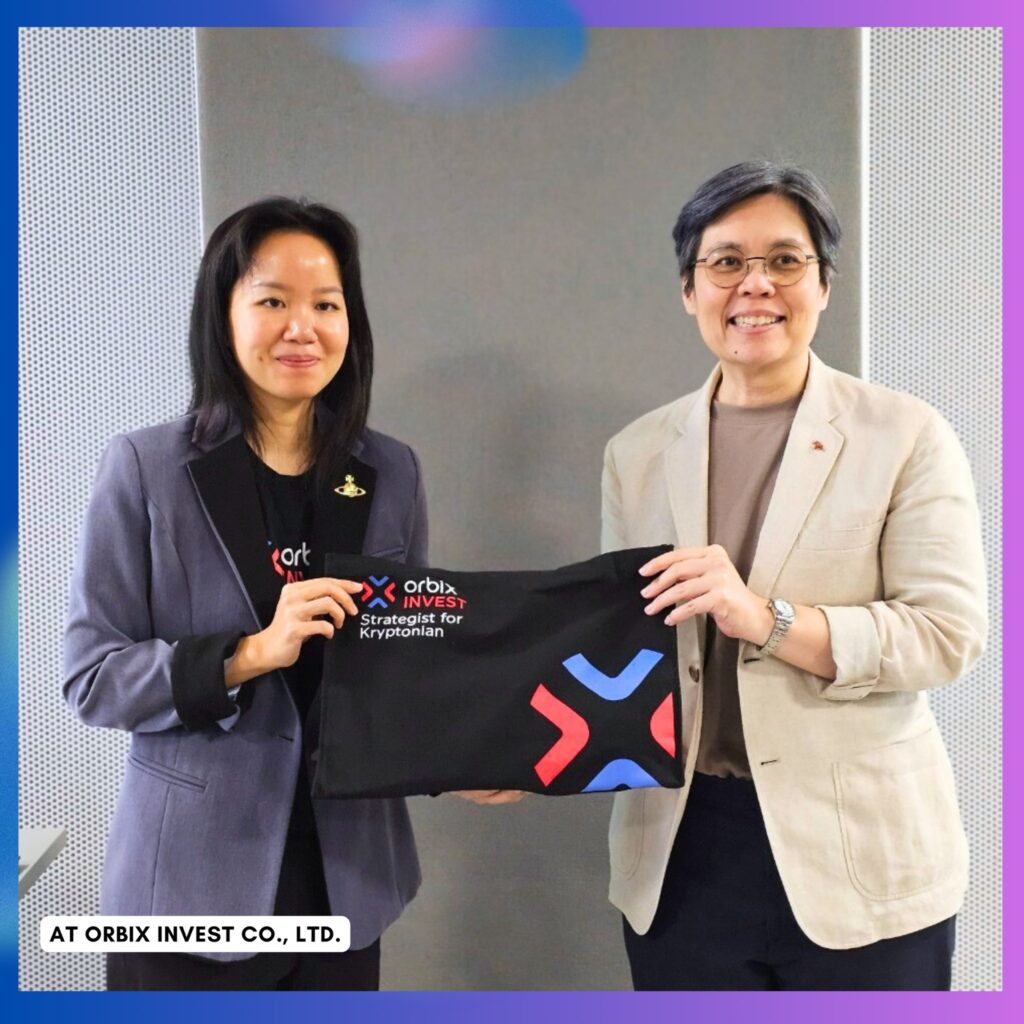Orbix Invest Co., Ltd. (orbix INVEST) is a subsidiary of Orbix Holdings Co., Ltd., which is owned by Kasikornbank. Orbix INVEST has been granted a Digital Asset Fund Manager license by the Ministry of Finance under the supervision of the Securities and Exchange Commission (SEC) on January 3, 2024. The company, as a digital asset fund manager, is committed to offering investment alternatives in digital assets to meet the needs of clients seeking expert management and professional oversight of their investments.
Orbix Invest provide both investment services and management, backed by a team of highly qualified professionals with extensive experience in digital assets. Additionally, our operations adhere to high standards, with a strong emphasis on effective risk management.
Stepping into Orbix, students found themselves at the forefront of a financial revolution, diving deep into the evolving trends of digital assets. They encountered a market grappling with traditional skepticism, exemplified by figures like Warren Buffett, while simultaneously witnessing a surge in corporate interest. This wasn’t just about speculative trading; it was about companies strategically considering Bitcoin as a balance sheet asset, signaling a fundamental shift in corporate treasury management.
The students explored the ‘small allocation, big performance impact’ thesis, gaining a nuanced understanding of how strategic, albeit modest, investments in digital assets can potentially yield significant portfolio enhancements, challenging conventional risk-return models. They delved into the complex issue of national Bitcoin reserves, a concept still in its infancy, yet underscored by the reality of countries holding confiscated digital assets. This highlighted the evolving perception of digital assets, transitioning from a fringe phenomenon to a potential component of national financial strategies.
Orbix illuminated the significant growth potential of the digital asset market, driven by progressive regulatory frameworks and accelerating mainstream adoption. Students witnessed how these factors are fostering innovation, attracting institutional investment, and reshaping the financial ecosystem. The discussions went beyond surface-level analysis, examining the intricate interplay between technological advancement, regulatory clarity, and market acceptance.
The visit revealed that the digital asset market isn’t merely a speculative bubble; it’s a dynamic and multifaceted space with the potential to disrupt traditional financial structures. Students left with a deeper appreciation for the complex interplay of factors driving the market, acknowledging both the inherent risks and the transformative potential of digital assets in the global economy. This experience wasn’t just an observation of a market; it was an exploration of a paradigm shift, bridging academic theory with the real-world implications of a rapidly evolving financial landscape.



